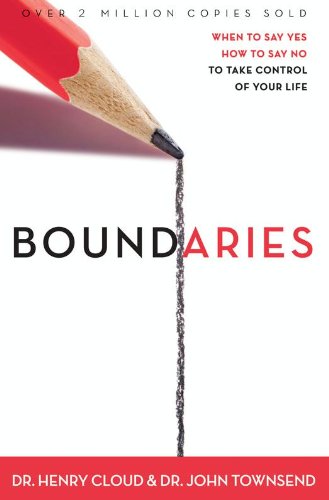Boundaries: When To Say Yes, How to Say No: When to Say Yes, When to Say No, to Take Control of Your Life
amazon.com
Boundaries: When To Say Yes, How to Say No: When to Say Yes, When to Say No, to Take Control of Your Life

The family is the social unit God invented to fill up the world with representatives of his loving character. It’s a place for nurturing and developing babies until they’re mature enough to go out of the family as adults and to multiply his image in other surroundings.
“You have not because you ask not.” And the Bible adds “because you work not.”
The most common resistance one gets from the outside is anger. People who get angry at others for setting boundaries have a character problem. Self-centered, they think the world exists for them and their comfort. They see others as extensions of themselves.
Spouses who are wise and loving will accept boundaries and act responsibly toward them. Spouses who are controlling and self-centered will react angrily.
Passive boundaries, such as withdrawal, triangulation, pouting, affairs, and passive-aggressive behavior, are extremely destructive to a relationship.
You need others who will be loving and supportive, but who will not rescue.
Finding your life’s work involves taking risks. First you need to firmly establish your identity, separating yourself from those you are attached to and following your desires. You must take ownership of how you feel, how you think, and what you want. You must assess your talents and limitations. And then you must begin to step out as God leads
... See moreOthers’ expectations can be very strong influences. You must make sure that your boundaries are strong enough that you do not let others define you. Instead, work with God to find out who you really are and what kind of work you are made for.
God intended the family to be an incubator in which we grow the maturity, tools, and abilities we need. Once the incubator has done its job, then, it’s supposed to encourage the young adult to leave the nest and connect to the outside world (Gen. 2:24), to establish a spiritual and emotional family system on one’s own. The adult is free to do
... See more